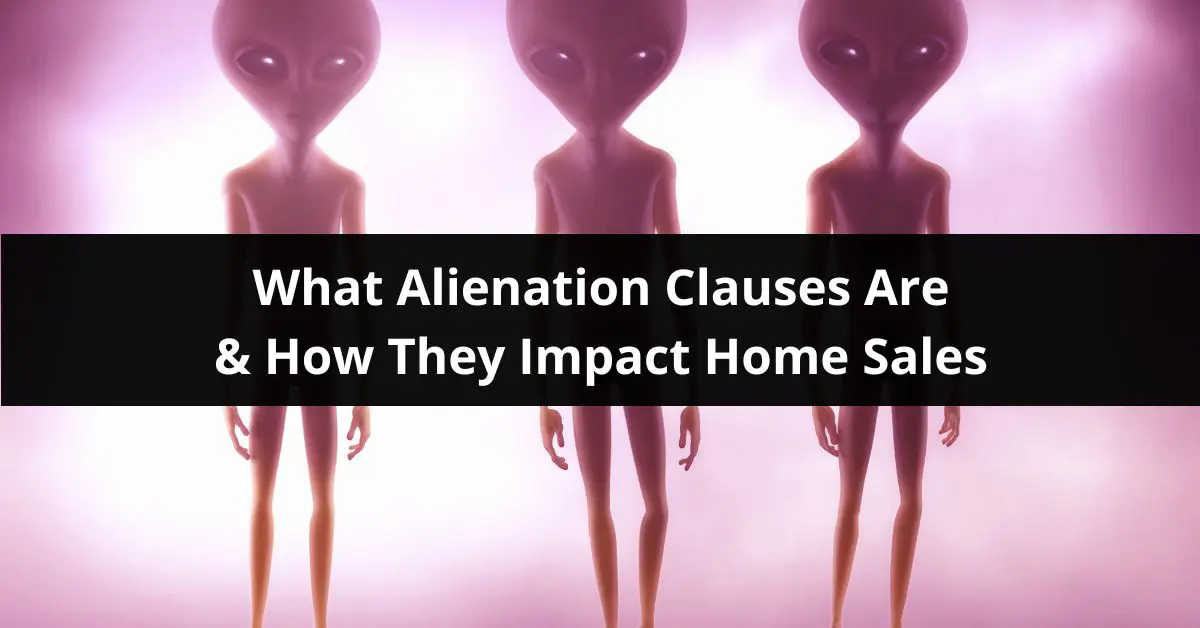Found in the fine print of almost every mortgage is something called an alienation clause. Don’t worry though, it has nothing to do with extraterrestrial life. Alienation clauses, also known as due on sale clauses, simply mean you have to pay your mortgage in full before you can sell the property.
The alienation clause was created as a reaction to the financing craze of the 1970s. In the 1974 court case, Tucker v Lassen S&L, ended with a ruling that a lender could not get their loan paid back when the borrower was selling the property. This ruling lead to uncertainty in real estate loans (mortgages), leading to the 1982 Garn-St. Germain Act which made alienation clauses enforceable again.
Once this became law of the land, most lenders added alienation clauses to loan contracts to make sure they get paid back in full before you can sell your property. But getting paid back before the property sells isn’t the only benefit to the lender.
An alienation clause also prevents the transfer of the mortgage terms and (most likely lower) interest rates to the new buyer. A higher interest rate means more money for the lender, and could also be a deterrent to a buyer causing your deal to fall through. Although that is less likely as the buyer will be looking at market rates, and the current rates will be fair. Alienation clauses also have an impact on foreclosures if you’re in debt and have missed a few mortgage payments.
The fastest and easiest way to sell your house and avoid foreclosures is to sell to a home buyer like us. The benefit here is that you can sell your house for cash and use the cash to pay down debts, or get a fresh start. With a foreclosure you lose everything. But the alienation clause throws a damper in this. If the home buyer doesn’t want to pay the remainder of the mortgage, then the alienation clause will not be satisfied and you’re stuck in the same boat. But don’t panic if your lender requires an alienation clause, they’re in almost every single mortgage agreement.
With that said, there are certain types of loans that aren’t allowed to have alienation clauses.
Loans that do not have alienation clauses include:
- Veterans Affairs (VA) loans
- U.S. Department of Agriculture (USDA) loans
- Federal Housing Administration (FHA) loans
In most cases, lenders will enforce the alienation clause. But like everything in life, there are a few exceptions including:
- When the borrower passes away and the property transfers to a joint owner.
- A divorce where the property is transferred to the other partner.
- If the property is transferred to a living trust.
- When a second mortgage is taken out on the home (like a home equity loan).
- If there is an assumable mortgage on the property.
Alienation clauses are nothing to fear. An alienation clause just means you have to pay back the balance of your loan when you sell your home to someone else.


